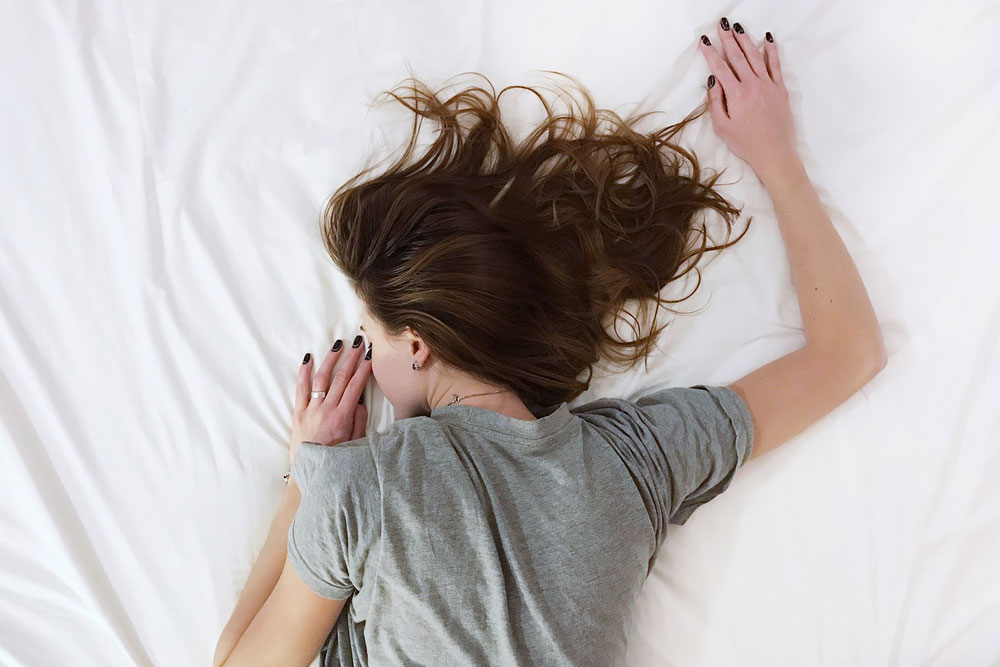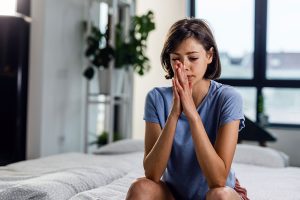What Affects Your Sleep?
Published on April 18th, 2019
Updated on January 7th, 2024

A poor night’s sleep is not helpful for starting your day. The mental fog and grumpiness that comes from poor sleep affects you in many ways. Millions of people suffer from poor sleep. It can be hard to live with sleep deprivation. Knowing the causes of poor sleep can help in developing healthier sleep hygiene.
Consequences of Poor Sleep
Not getting enough sleep has many consequences in different areas of a person’s life. Sometimes, our bodies can seem to adapt to a lack of sleep. Even though the body can adapt, it is not working at its highest potential when deprived of sleep. Sleep deprivation causes many consequences, including:
- Hindered alertness
- Low sex drive
- Depression
- Anxiety
- Wrinkles
- Affected diet
- Caffeine addiction
- Poor work or academic performance
- Stress
- Panic attacks
In severe cases, sleep deprivation can lead to serious consequences, like insomnia, psychosis and alcoholism. Because of these consequences, it is important to be able to identify how your sleep is being interrupted. Below are some prime examples of factors that may be affecting your sleep.
Sponsored by

Choose a therapist to work with and start healing with 20% off from BetterHelp.
Click HereStress
Stress is major factor that affects sleep. When you are stressed you may find it difficult to sleep well. Difficulty sleeping will cause heightened stress. They each affect each other equally and can deeply affect how you feel.
Stress and sleep deprivation will cause you to feel anxious and emotional. You will easily feel overwhelmed and will struggle to calm down. Stress will cause muscle tension, which can cause joint pain and headaches. It is not uncommon for people to also suffer from stomach pain. Stress tends to increase acids in the stomach, causing pain and acid reflux. Stress can also affect how well you calm your mind before bed.
Alcohol
Many people believe that alcohol helps them sleep. This is a myth. While alcohol may cause you to fall asleep faster, it does little to improve your quality of sleep. Sleeping with alcohol in your body prevents restful sleep. It impacts the ability to have restorative sleep. Instead of waking up refreshed, you will feel groggy and unwell.
Alcohol suppresses the respiratory system, so you get less oxygen in your body while sleeping. This prevents the healing and restoration of muscles and vital organs. As little as one drink before bed can significantly reduce your quality of sleep.
Caffeine
Caffeine is arguably the biggest culprit for people who suffer from sleep issues. People tend to think of caffeine as a sleep substitute. When tired, people will turn to caffeine to stay awake. Caffeine is a stimulant, which helps people feel more alert. The problem is that the caffeine in the body prevents the body from being able to rest soundly.
People who drink caffeine anytime within 8 hours before going to bed will suffer from diminished sleep. The caffeine that is still in the body will prevent restful and restorative sleep. This will cause a person to suffer from fatigue and drink more coffee, which worsens the issue.
Caffeine tolerance and addiction will have a major impact on your ability to sleep soundly. It is advised to not have more than 2 caffeinated drinks per day. Any more than this will significantly contribute to sleep issues and increase the risk of caffeine addiction.
Sponsored by

Find an affordable therapist online with 20% off from BetterHelp.
Click Here






Leave A Reply